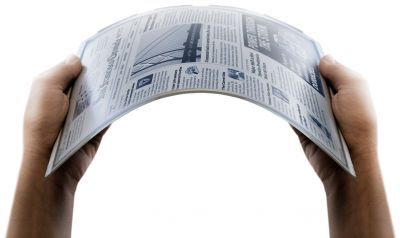Amazon in the sights of e-reader rivals

Rivals are lining up to try to knock Amazon's Kindle off its throne, offering electronic readers aimed at business professionals or devices geared more to newspapers and magazines than books.
Some two dozen companies are displaying e-readers this year at the Consumer Electronics Show (CES) in Las Vegas, more than ever before, and the organizers have provided them with a coveted dedicated space for the first time.
While a host of new e-readers are on display, two of the biggest players, or potential players, are absent - Amazon itself and Apple, which is reported to be coming out this month with a tablet computer that may double as an e-reader.
None of the current crop of e-readers offers what Apple is rumored to have in the works - a full-color display - although a number of manufacturers told AFP on Thursday that color figured highly in their future plans.
With Amazon considered the king of e-books - even if it refuses to reveal Kindle sales figures - several other firms are looking to fill a niche in the growing market.
Japan's Sony Reader has been nipping at Amazon's heels for some time and another Asian electronics giant, South Korea's Samsung, jumped into the fray this week with two e-readers, the E6, which has a six-inch (15.2-centimeter) screen, and the E101 with a 10-inch (25.4-centimeter) display.
The E6 costs 399 dollars, more than the 249 dollars for the basic Kindle, while the E101 goes for 699 dollars, significantly more than the 489 for Amazon's large-screen Kindle DX.
Samsung is not the only new entrant with a relatively high price tag.
Britain's Plastic Logic unveiled a long-anticipated QUE e-reader it described as a "paperless briefcase" for the business professional.
A QUE with four gigabytes of memory, capable of storing as many as 35,000 documents, costs 649 dollars while an eight-gigabyte model costs 799 dollars.
Like the Kindle DX, the QUE is about the size of a piece of paper but it has a plastic finish instead of glass. It also has a stylish black border around its touchscreen and is sleeker and thinner than the plain white Kindle DX.
"We are going beyond an e-reader product and actually developing a whole new category," Plastic Logic chief executive Richard Archuleta said.
QUE devices allow users to mark-up and annotate documents as well as work with spreadsheets and other business software.
Archuleta said QUE is the first of what will be a series of specialized e-readers for students, teachers, health care professionals and other niche markets.
Plastic Logic partnered with US bookseller Barnes & Noble, which came out with its own e-book reader, the Nook, late last year, in an online bookstore.
Another new player is Hearst-backed Skiff, which aims to provide newspaper and magazine readers with what chief marketing officer Kiliaen Van Rensselaer called a "more authentic" experience.
"It's got the whole newspaper with all the visuals," Van Rensselaer said as he browsed through a digital replica of The Wall Street Journal with a swipe of the finger on the Skiff touchscreen.
Skiff is also touting its ability to provide advertising alongside articles, a feature important to struggling US publishers which the Kindle and others do not currently provide.
"We find that with newspapers and magazines, people actually like the ads," Van Rensselaer said. "We want to capitalize on that. Publishers are going to get a big share of that advertising."
"We will have a competitive book offer but our sweet spot is really newspapers and magazines," he said.
Skiff has not set a price yet for its first device which it plans to release by the end of the year.
Gartner analyst Allen Weiner singled out the Skiff for praise but was unimpressed with most of the new offerings.
"Many of the devices do pretty much the same thing: present books in e-Pub format," he said. "Some have bells and whistles that are minor but they don't do anything to create a book experience.
"And they do a terrible job with newspapers and magazines."
Weiner said he thinks the Skiff is the "real winner" in the category.
"This is the best reader of newspapers I've seen and it also has an ad dimension," he said.
But the entire category may be endangered, however. "With tablets on the way what we have here may appear as an afterthought," he said.
"A device that does nothing but show text is going to be passe by the middle of the year," he said. "An Apple tablet and others are all going to offer color and exciting applications."
Subscribe to Independent Premium to bookmark this article
Want to bookmark your favourite articles and stories to read or reference later? Start your Independent Premium subscription today.

Join our commenting forum
Join thought-provoking conversations, follow other Independent readers and see their replies